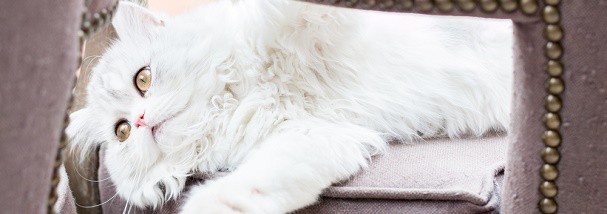 Inspired by Francesca Riccomini, veterinary surgeon and animal behaviourist
Inspired by Francesca Riccomini, veterinary surgeon and animal behaviourist
People often don't realise something is amiss with their pet's behaviour until something goes wrong, and then it's too late! Since pets can't talk, their behaviour is the only indication of illness, bar any physical symptoms. When a pet is acting normally, it's reassuring – it means our pet is happy and well. A change therefore, may suggest something is wrong. The change may be physical, psychological, emotional or a combination.
The number of medical issues that are known to have a behavioural effect on animals has grown dramatically, making this an exciting time for vets. As a vet, behaviour can mean three main things: disease or dis-ease, good health or recovery.
As an owner, we must know what our pet needs to be in good health, happy and comfortable. This includes giving them the freedom to express normal behaviour, something often neglected. A good example of this is keeping an indoor cat. As an owner, you may feel you have good reason to – the way you see it is that the cat is safe – there are no cars, she's at a reduced risk of disease, and no one can snatch her. Your cat on the other hand, is probably rather unhappy kept inside with a smelly litter tray, one scratching post and a handful of old toys she's played with hundreds of times before.
As well as understanding normal behaviour, we must also understand abnormal behaviour. It's normal for cats to hide and retreat in the face of threat. Cats are highly skilled predators, and are good at keeping out of trouble, but they can also be prey. They will therefore often act frightened or withdraw when the vacuum cleaner appears, or when your friend comes round to say hello. To your cat, your friend is a stranger, a potential threat. You may be excited to show him your cute new kitty, but your cat may not feel the same!
Remember also that apparel such as hats, helmets and motorbikes will often be scary to your cat too, unless she has been exposed to them when young (2-7 weeks old is the learning period for cats, 3-12 weeks for dogs). New carpets, flooring and furniture – and even the new physical layout of a room – can also influence your pet's behaviour.
Dogs are often punished for destructive behaviour but as owners we need to remember that aggression is part of the canine profile! Adult dogs deliberately discipline their puppies, but when the human owner interferes it can cause problems. The owner thinks the dog is being cruel and punishes her, when really the adult dog is just expressing normal behaviour. This in turn disturbs the canine relationship – the puppy no longer understands the mother is dominant etc. Then problems arise in multi-dog households, for example there may be significant canine tension.
As an owner, it's imperative to educate yourself on your chosen pet species. When introducing a new dog to your home, ensure your other dogs are happy. Read up on complementary dog breeds, introduce them properly and provide adequate management.
Dogs and rabbits dig, it's in their nature. Keen gardeners often punish their dogs for digging up their garden, but this is normal behaviour. The digging may symbolise the dog is bored, or is the dog a working breed and perhaps dislikes its lifestyle? Rabbits burrow outside in communities – bringing a rabbit inside doesn’t stop its need to burrow.
It's in a dog's nature to chase furry things. In the park and your garden, you probably encourage him to chase squirrels – but if your dog starts chasing a cat, he is punished. How is he supposed to know the difference?
As owners or potential pet owners, the best thing you can do for your animal is to gain a good current knowledge of your particular animal. This means reading the latest books and journals, and reliable information from recognised websites. Learn to distinguish between normal and abnormal behaviour.
We all want to enjoy our pets, but at the same time we are advocates for them and their welfare comes first.


